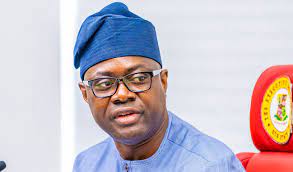While signing into law, the N17.127trillion 2022 budget on Friday last week, President Muhammadu Buhari expressed some reservations bordering on removal of some of the original proposals and insertions of new ones. TAIYE ODEWALE reports
Meaning of budget
Budget as commonly defined is financial statement of intention or proposals on expected incomes or revenues and projected expenditures to be made in a fiscal year by government at whatever level, be it federal, state or local government, as obtainable in Nigeria.
Executive, legislature contention on budgetary proposals
Over the years since the advent of this fourth republic, there had been contentions between the executive and legislative arms of government, particularly at the federal level as regards budgetary proposals and projections.
While the executive arm of government as empowered by relevant provisions of the 1999 Constitution (as amended), believes that since it has the power to prepare budget, projections and proposals to that effect on expected incomes and expenditure, should be solely determined by it; the legislature feels otherwise based on the power of appropriation conferred on it by relevant provisions of the Constitution.
The misinterpretations or misunderstanding of such constitutional provisions, have always made the affected two arms of government to be at loggerhead anytime budgetary proposals are forwarded for consideration, passage and signing into law by President of the country.
In the past, such disagreements or rancour often cropped up allegations of padding of budgetary estimates for proposed projects between the two affected arms of government.
9th NASS and President Buhari’s harmonious approach
Though since 2019 after the inauguration of the 9th National Assembly, rapport for minimized disagreements on budgetary proposals and approvals between the Presidency and the National Assembly have been created, aside restoration of yearly budgetary cycle to January – December timeline, but observations on tinkering on proposals made, have always been made by President Buhari at the point of signing the budget.
The 2022 dimension
Such observations by President Muhammadu Buhari, however, took a different dimension last Friday before assenting to the N17.127trillion 2022 budget which many watchers of polity perceived to be serious disagreement and beginning of feud between the two arms of government.
Buhari’s observations
President Muhammadu had through a statement issued by his Senior Special Assistant on Media, Garba Shehu, at the signing of the 2022 budget, expressed deep concern over alleged “worrisome” tampering and “changes” made to the Bill by both chambers of the National Assembly.
He announced that he would revert to the National Assembly with a request for amendment as soon as the Assembly resumes to ensure that critical ongoing projects cardinal to this administration did not suffer a setback due to reduced funding.
The President recounted that during the presentation of the 2022 Appropriation Bill, he had stated that the fiscal year 2022 would be very crucial in his administration’s efforts to complete and put to use critical agenda projects, as well as improve the general living conditions of our people.
He said: “It is in this regard that I must express my reservations about many of the changes that the National Assembly has made to the 2022 Executive Budget proposal.
“Some of the worrisome changes are as follows: Increase in projected FGN Independent Revenue by N400 billion, the justification for which is yet to be provided to the Executive;
‘‘Reduction in the provision for Sinking Fund to Retire Maturing Bonds by N22 billion without any explanation
‘‘Reduction of the provisions for the Non-Regular Allowances of the Nigerian Police Force and the Nigerian Navy by N15 billion and N5 billion respectively.
‘‘This is particularly worrisome because personnel cost provisions are based on agencies’ nominal roll and approved salaries/allowances;
‘‘Furthermore, an increase of N21.72 billion in the Overhead budgets of some MDAs, while the sum of N1.96 billion was cut from the provision for some MDAs without apparent justification;
‘‘Increase in the provision for Capital spending (excluding Capital share in Statutory Transfer) by a net amount of N575.63 billion, from N4.89 trillion to N5.47 trillion.
“Others are deductions in provisions for some critical projects, including N12.6 billion in the Ministry of Transport’s budget for the ongoing Rail Modernisation projects; N25.8 billion from Power Sector Reform Programme under the Ministry of Finance, Budget and National Planning; N14.5 billion from several projects of the Ministry of Agriculture, and introducing over 1,500 new projects into the budgets of this Ministry and its agencies.
“Inclusion of new provisions totaling N36.59 billion for National Assembly’s projects in the Service Wide Vote which negates the principles of separation of Powers and financial autonomy of the Legislative arm of government.
‘‘The changes to the original Executive proposal are in the form of new insertions, outright removals, reductions and/or increases in the amounts allocated to projects.
‘‘Provisions made for as many as 10,733 projects were reduced while 6,576 new projects were introduced into the budget by the National Assembly.
‘‘Reduction in the provisions for many strategic capital projects to introduce ‘Empowerment’ projects.
‘‘The cuts in the provisions for several of these projects by the National Assembly may render the projects unimplementable or set back their completion, especially some of this Administration’s strategic capital projects.
‘‘Most of the projects inserted relate to matters that are basically the responsibilities of State and Local Governments, and do not appear to have been properly conceptualised, designed and costed.
‘‘Many more projects have been added to the budgets of some MDAs with no consideration for the institutional capacity to execute the additional projects and/or for the incremental recurrent expenditure that may be required.’’
He wondered that despite the National Assembly increasing projected revenue by N609.27 billion, the additional Executive request of N186.53 billion for critical expenditure items could not be accommodated without increasing the deficit, while the sum of N550.59 billion from the projected incremental revenues was allocated at the discretion of National Assembly.
‘‘I signed the 2022 Appropriation Bill into law to enable its implementation to commence on 1st January 2022.
‘‘However, I will revert to the National Assembly with a request for amendment and/or virement as soon as the Assembly resumes to ensure that critical ongoing projects that are cardinal to this administration, and those nearing completion, do not suffer a setback due to reduced funding”, he stressed.
Public apprehension
Expectedly, due to the seriousness of the President’s reservations, some Nigerians have started expressing concerns on the cordial relationship existing between both arms of government within the last three years.
But the Presidency in a statement on Sunday night, declared that observations or reservations expressed by President Buhari on changes made on the 2022 budget by the National Assembly will not in anyway affect their harmonious working relationship.
However, whether the harmonious working relationship will be affected or not, will surely be known when the planned supplementary budget is forwarded to the National Assembly for approval as the federal lawmakers may not want their own constituency projects to be tampered with.




